This Guide outlines the ΒιΆΉΤΌΕΔ's health & safety vetting procedure for the 'Independents' ('Indies') we commission and makes clear our right to monitor them against health and safety criteria established during the vetting process.
What can go Wrong?
- Injury to person involved in the production or to member of public
- Complaints by viewers and listeners
- Complaints and investigation by enforcement authorities
- Reputational Damage to the ΒιΆΉΤΌΕΔ
Legal/ΒιΆΉΤΌΕΔ Requirements
- Vetting of an Independent Production Companyβs health and safety arrangements must be completed before their first use and then every three years thereafter.
- Since vetting is part of the selection process for a competent independent production company, it cannot be done retrospectively. Adequate time must be allowed before selection to complete the vetting process and resolve any issues. Refer to 'The Safety Vetting Process' in Useful Documents for more details.
- The ΒιΆΉΤΌΕΔ has an agreement with ITV, Sky, Channel 4, and S4C to share vetting information. Once vetted by one of these partner organisations, an independent production company does not need to be vetted again by the other broadcasters. Vetting is valid for three years. However, please note that due diligence will still be conducted to ensure all standards are met.
Control Measures
Safety Vetting
- The Safety Vetting Process (in Useful Documents) describes the process
- Business Affairs Manager (BAM) check βWhatsOnβ to verify if Indy has been safety vetted
- If not, or it has expired, the BAM contacts Safety Advice Line to check if the Indy has been vetted by another broadcaster
- If yes, Safety to update WhatsOn; if not, BAM to send our safety vetting form to the Indy to start the process (see Useful Documents)
- The BAM should review all the safety vetting papers submitted by the Indy prior to submission to make sure all the relevant questions are answered and that the right documents have been supplied before submitting them to the Safety Advice Line
- The Indy should not submit any documents or emails direct to the Safety Advice Line, all communication should always come via the ΒιΆΉΤΌΕΔ team engaging the Indy, to the Safety Advice Line.
- ΒιΆΉΤΌΕΔ Safety reviews documents submitted to them and advises BAM of the outcome; the 'approval' period is normally 3 years
- For commissions involving 'high risk' activities and/or locations (see below), in addition to being vetted for health and safety by the above procedure, the Indy will need to seek security advice from a company vetted by the ΒιΆΉΤΌΕΔ High Risk team.
- ΒιΆΉΤΌΕΔ Safety (including the High Risk team) is unable to provide direct safety advice to Indies for legal reasons.
High Risk shoots / deployments
Where the Indy commission involves elements of 'High Risk' (see below), then the Commissioner must obtain and follow advice from the ΒιΆΉΤΌΕΔ High Risk and News Safety team before travel (see Recommended Links (Gateway))
We define 'High Risk' as βelevated risk of death/detention of crew or contributors, or significant damage to the ΒιΆΉΤΌΕΔβs operations and/or reputationβ and may involve:
- Hostile Environments. A Hostile Environment is a country, region or specified area subject to war, insurrection, civil unrest, terrorism or extreme levels of crime, banditry, lawlessness or public disorder; or areas with extreme climate or terrain;
- High Risk Events. A High Risk Event might be major rioting, civil disturbance or extreme public disorder, large scale terrorist or armed criminal incidents such as hi-jacking or sieges, any event involving chemical, biological, radiological or nuclear (CBRN) substances, extreme climatic events and natural disasters such as hurricanes, severe floods, earthquakes, volcanic eruptions, etc. or outbreaks of serious diseases and pandemics. (Events will be designated as High Risk by the High Risk Team in discussion with News Group senior management)
- High Risk Activities. High Risk Activities are investigations involving covert surveillance or filming and/or confrontation of terrorist, serious organised criminal, extremist or violent political groups or sensitive investigations against hostile governments or groups (criminal gangs for example).
The Business Affairs Manager must ensure that the ΒιΆΉΤΌΕΔ High Risk Team is notified of any proposed βHigh Riskβ deployments or shoots.
High Risk team input
β’ In support, the High Risk team will provide advice to the Commissioner regarding countries listed as Hostile Environments and will advise on Hostile Environment training and equipment requirements. (Equipment is available through the ΒιΆΉΤΌΕΔ safety equipment stores. Procurement of training and equipment is nevertheless a matter for the Indy and is considered a production cost)
β’ The High Risk team will advise on vetted high-risk advice and security providers who the Indy can engage to create a high risk RA and to provide crisis-management during the period of the deployment.
β’ The completed RA will come back to the High Risk team for a Quality Assurance check, and the relevant High Risk Advisor will provide feedback to the Commissioner as to the quality and rigour of the advice included in the RA. This should occur ahead of the Commissionerβs editorial sign off, which confirms that the residual level of risk pertaining to the proposed plan is tolerable from the risk ownerβs perspective.
β’ Provide oversight during any crisis or emergency whilst the Indy and the vetted high-risk and security provider manage the situation.
β’ Ensure activities by the production that may impact adversely other ΒιΆΉΤΌΕΔ operations are co-ordinated.
β’ The Indy should ensure any significant changes to agreed plans are discussed with ΒιΆΉΤΌΕΔ commissioners and the High Risk team before proceeding.
β’ For further guidance for commissioners working with Indies, please contact the High Risk Team: safetyhighrisk@bbc.co.uk
Monitoring
- The ΒιΆΉΤΌΕΔ reserves the right to carry out assurance monitoring of the safety performance of the Independents. ΒιΆΉΤΌΕΔ Safety will carry out monitoring checks on random productions based on a risk rating taking into consideration the activity planned, their previous experience, safety support etc. This may include checks on the Independents compliance with their safety policy, reviewing the plans for any particular programme, site inspections, monitoring content including content that was not broadcast.
- The indy is responsible for reporting accidents to the relevant enforcing authority (e.g. the HSE in the UK) but will also inform the ΒιΆΉΤΌΕΔ by phoning the Safety Advice Line or the BAM of the circumstances of any RIDDOR incident or similarly serious incident (such as an accident overseas or a serious Road Traffic Accident).
- The BAM or Commissioner to inform Safety of relevant incidents or safety complaints.
Division Specific Issues
- No specific divisional issues.
FAQs/Did You Know?
- From 1st December 2024 (the βCommencement Dateβ), the Broadcasters will collaborate by sharing information obtained during pre-commissioning health & safety checks. This collaborative project aims to reduce the number of health & safety checks required, thereby lessening the burden on both production companies/producers and broadcasters.
- This initiative updates the original Broadcasters Agreement from January 2015 with a new Memorandum of Understanding commencing from 1st December 2024. Essentially, a company vetted by the ΒιΆΉΤΌΕΔ and meeting the full criteria on the form will be able to work with ITV, Sky, Channel 4, or S4C without further vetting, and vice versa.
Useful documents
-
Independent Productions - Safety Vetting Form (ΒιΆΉΤΌΕΔ) December 2024
-
Recommended links
-
[Gateway]
-
Working with Third Parties topics
-
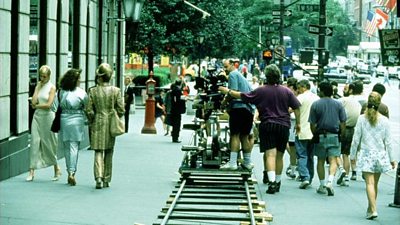
Contractors: Working with
This Guideline sets out our approach to working safely with contractors and includes access to our vetted contractor lists. -
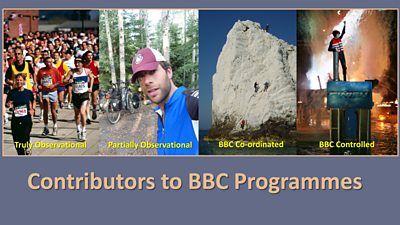
Contributors: Working with
This Safety Guideline provides guidance to those who work with contributors in the generation of content for our programmes or webpages, be it us filming / recording them or them providing us with their user generated content (UGC). -
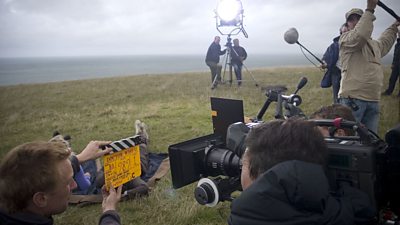
Freelancers: Working with
A Safety Guideline to the engagement and management of βfreelancersβ working at the ΒιΆΉΤΌΕΔ. -

Independent Production Companies: Working with
The ΒιΆΉΤΌΕΔ needs to ensure that any Independent Production Company it commissions is able and competent to make the programme with due consideration for health and safety. -

Monitoring and Review
Monitoring and review are the βcheckβ part of the PlanβDoβCheckβAct of our H&S management system. -
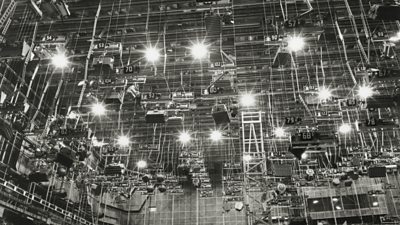
Riggers: Selection of
This Safety Guideline provides guidance to those who wish to engage riggers / rigging supervisors on productions. -
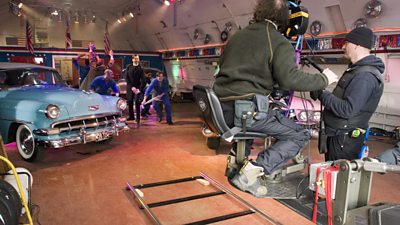
Working with Third Parties
This section lists the safety guidelines we have for when we work with third parties i.e. those who are not employed directly by the ΒιΆΉΤΌΕΔ.
More from SSR
-
Your platform to record accidents, risk assessments, assurance monitoring and inspections
-
Safety Equipment Stores
Just one number to call: 020 3614 5155 -
ΒιΆΉΤΌΕΔ Safety Guidelines
An A-Z of ΒιΆΉΤΌΕΔ's Health and Safety Guidelines -
Safety Advice Line: 0370 411 0464 Email: safety@bbc.co.uk
- A-Z of ΒιΆΉΤΌΕΔ Safety Guidelines
- Accident Reporting and Investigation
- ΒιΆΉΤΌΕΔ Health & Safety Policy
- Contractors (incl. vetted lists)
- Contributors
- Fire Safety
- Freelancers
- Independent Production Companies
- Risk Assessment
- Safety Alerts
- Safety Responsibilities
- Safety Training
- Sets & Premises Safety Guide
Events guidance - key links:
- Exhibitions
- General Guidance
- Indoor Location Recce Checklist
- Outdoor Location Recce Checklist
- Major Incidents & Emergency Planning
- Marketing and Promotional
- Noise Exposure
- Planning and Management
- Responsibilities
- Responsibilities Form
- Laser Lighting Effects
- Strobe Lighting
- Temporary Stages and Rostra
Health topics - key links:
- (ΒιΆΉΤΌΕΔ network only)
- Contributors Fitness to Participate
- Display Screen Equipment (DSE)
- (ΒιΆΉΤΌΕΔ network only)
- First Aid and Welfare on Location
- International Travel - Risks & Health
- Manual Handling
- Mental Health: ΒιΆΉΤΌΕΔpage
- (ΒιΆΉΤΌΕΔ network only)
- Personal Health and Wellbeing
- Pregnancy
- Psychological Trauma Support & Trauma Risk Management (TRiM)
- Tiredness and Fatigue
- Travel Health Contacts
ΒιΆΉΤΌΕΔ High Risk - key links:
- CBRN and Industrial Spills
- Covert Filming
- Crisis Management and Security Support
- Demonstrations, Protests and Crowds
- Disaster Coverage
- Door Stepping
- (ΒιΆΉΤΌΕΔ network only)
- (ΒιΆΉΤΌΕΔ network only)
- Public Order
- Safety Equipment Stores
ΒιΆΉΤΌΕΔ Journalism - key links:
ΒιΆΉΤΌΕΔ Productions - key links:
- Aerial Filming and Airfields
- Animals: Displaying and handling for performance
- Boats: Working on
- Children and Young People
- Driving
- Electrical Equipment and Systems
- First Aid and Welfare on Location
- Food Safety (Cooking and Catering)
- Remote Location Working
- Roads and Streets: Working by
- Security of Productions on Location
- Stunts
- Tiredness and Fatigue
- Unmanned Aerial Systems (UAS aka Drones)
- Vehicles: Recording in, from and around
- Working at Height: Mobile Elevating Work Platforms
- Working at Height: Tower Scaffolds
ΒιΆΉΤΌΕΔ Radio - key links:
- (ΒιΆΉΤΌΕΔ Network only)
ΒιΆΉΤΌΕΔ Security - key links:
ΒιΆΉΤΌΕΔ Sport - key links:
About this site
This site describes what the ΒιΆΉΤΌΕΔ does in relation to managing its health, safety and security risks and is intended for those who work directly for the ΒιΆΉΤΌΕΔ.
It is not intended to provide instruction or guidance on how third parties should manage their risks. The ΒιΆΉΤΌΕΔ cannot be held liable for how this information is interpreted or used by third parties, nor provide any assurance that adopting it would provide any measure of legal compliance. More information
Some links on this site are only accessible when connected to the ΒιΆΉΤΌΕΔ network
